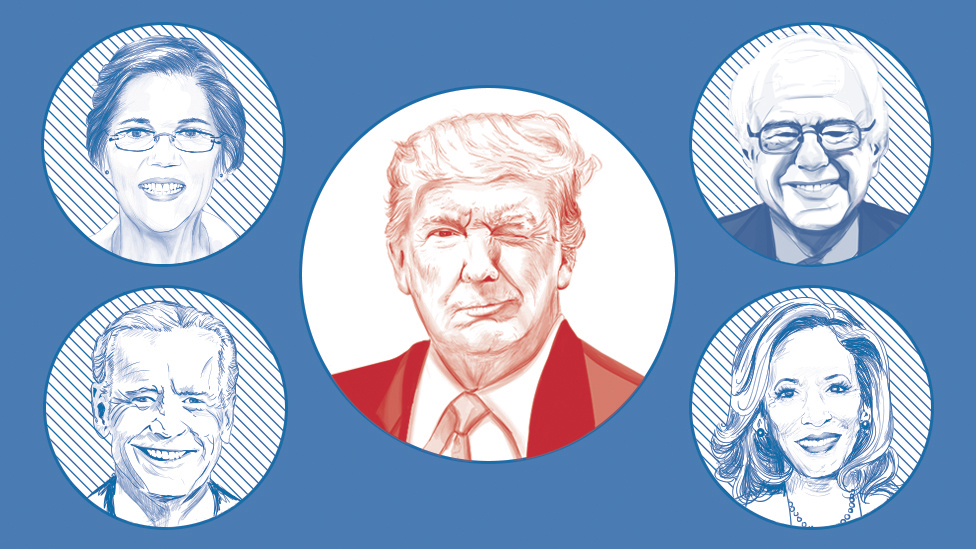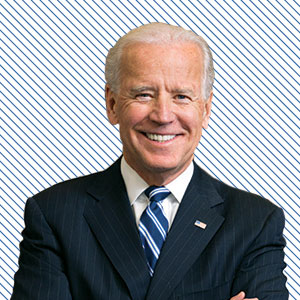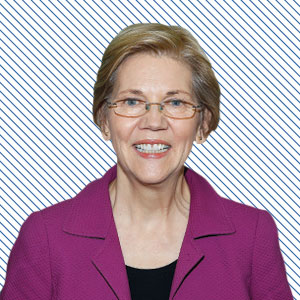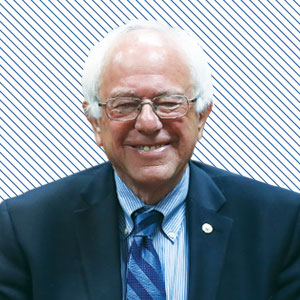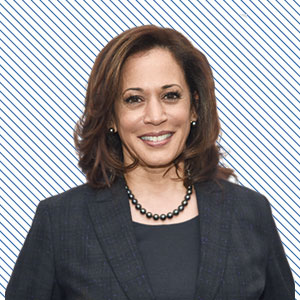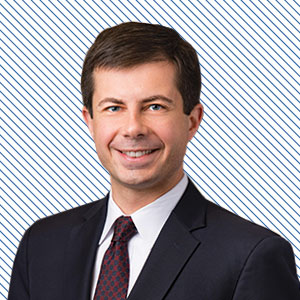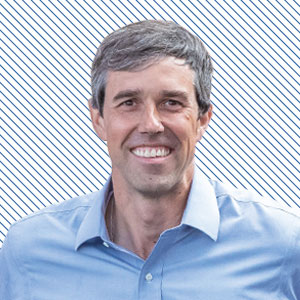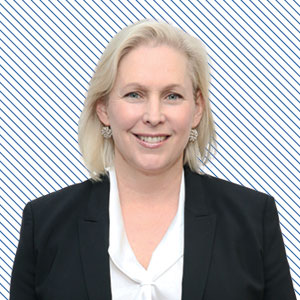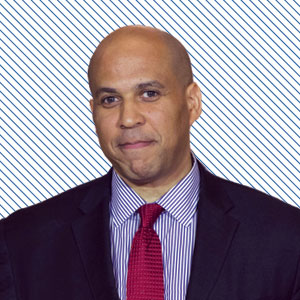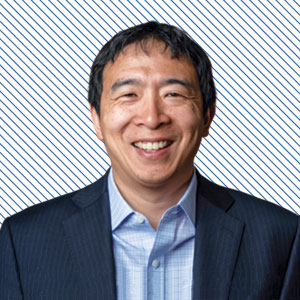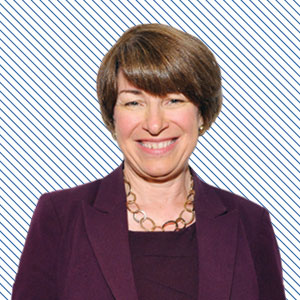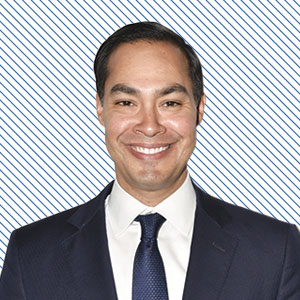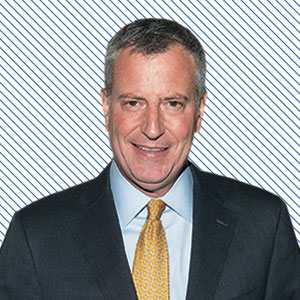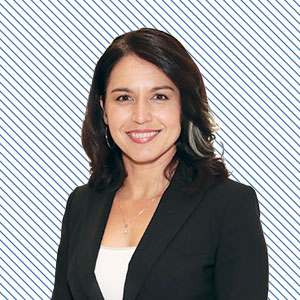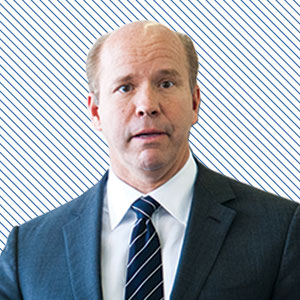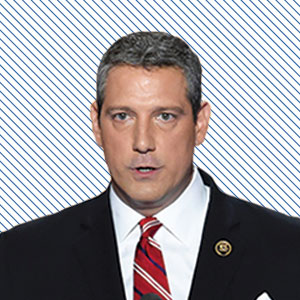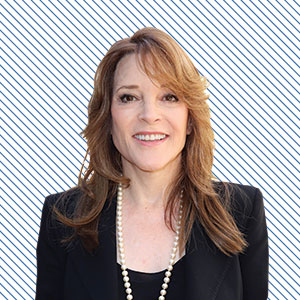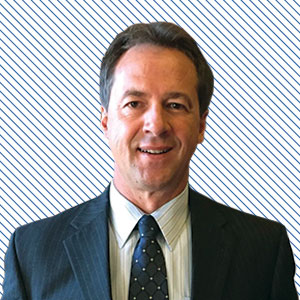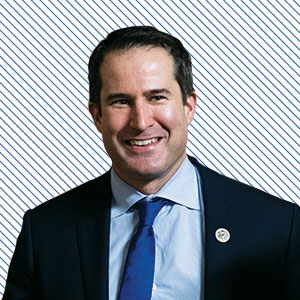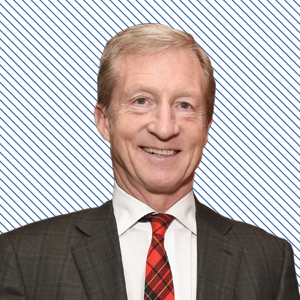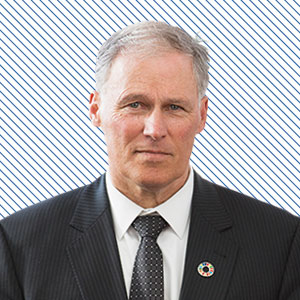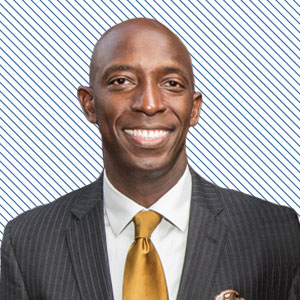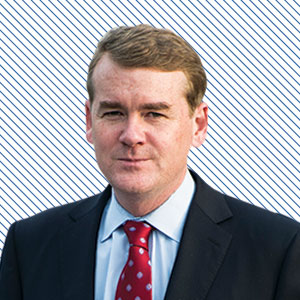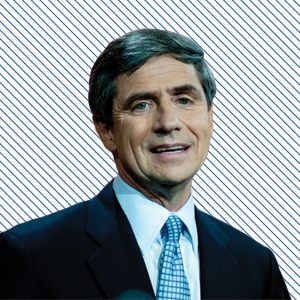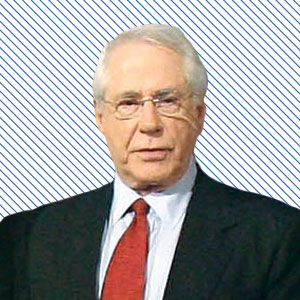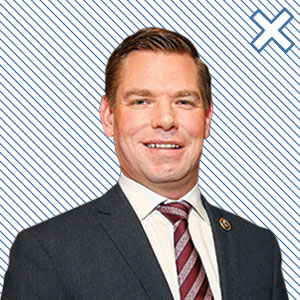Who will take on Trump in 2020?
Election day is still more than a year away, but the race to become the Democratic challenger to Donald Trump is already well under way.
Joe Biden and Bernie Sanders have thrown their hats into the ring, but most of the other candidates are relatively unknown outside the Washington DC bubble.
The group features the usual mix of senators and other members of Congress, but this year it also includes a record number of women, a gay mayor and a spiritual counsellor.
Here’s our rundown of all the major candidates that are running, including a few wildcards, with a take from the BBC’s Anthony Zurcher on each.
Who will take on Trump in 2020?
Joe Biden
Barack Obama picked Joe Biden to be his running-mate in 2008 because of his supposed folksy appeal to white working-class and middle-class voters – and that’s exactly why he could be a formidable candidate in 2020.
The former Delaware senator unsuccessfully sought the Democratic presidential nomination in 1998 and 2008 and declined to run in 2016 after the death of his son from brain cancer.
His long voting record, which includes backing the Iraq War in 2002, would come under much scrutiny if he does enter the race.
He has sharply criticised Donald Trump for “trashing American values”, but he’s seen as a Democrat who could work with Republicans.
Anthony’s take:
Joe Biden enters the Democratic presidential contest as a front-runner, if not the front-runner. He has near universal name recognition, high approval ratings, and the potential to raise vast amounts of campaign money through traditional Democratic donor networks.
Of course, so did Hillary Clinton in 2015 – and we all know how that turned out.
Mrs Clinton’s key weakness was her lengthy time in the public eye, leaving a long record for her opponents to pick apart, and binding her to a status quo establishment many Americans had come to distrust.
Mr Biden shares those challenges in spades, and he faces a much more diverse and talented primary field than Mrs Clinton did.
Elizabeth Warren
Elizabeth Warren has been a favourite of the progressive left since she emerged on the political scene to push for tougher regulation of the financial sector after the 2008 economic crash.
During her time in the US Senate she became known for her hard-nosed interrogations of Wall Street executives and as an outspoken critic of income inequality.
That loyal base may be enough to rise to the top of a fractured Democratic presidential field – but she will probably have to pry some supporters away from Bernie Sanders, who will be competing with her for progressive hearts and minds.
Anthony’s take:
She’s got financial chops and is building a formidable political operation, but professorial Massachusetts liberals are a tough sell to the rest of the country. Progressives will have to decide if they find her promise of economic reform more attractive than Bernie’s revolutionary zeal.
undefined
Bernie Sanders
The Vermont senator would be 79 on election day, but he’s decided to make another run at the top prize.
His long-shot bid for the Democratic presidential nomination in 2016 captured the hearts of American progressives, and he has been packing arenas with loyal supporters ever since.
But former allies Elizabeth Warren and Tulsi Gabbard are both also running this time round and could carve off some of his support.
Anthony’s take:
Bernie Sanders is a victim of his own success. In 2016 he pulled the Democratic Party to the left, but it means he’s not as unique a candidate in 2020. He has the advantages of name recognition, fund-raising and national campaign organisation, but his opponents won’t avoid attacking him the way Hillary Clinton did three years ago. His days as a plucky underdog are over.
undefined
Kamala Harris
Kamala Harris is the kind of Democrat who could stick around and prevail in what is sure to be a gruelling nomination battle.
She is from California, which is rich in both primary delegates and fundraising dollars. As a woman, and from an ethnic minority, she is well positioned to capitalise on her party’s growing diversity.
She has one of the most liberal voting records in the US Senate at a time when Democrats are leaning to the left, but she also has a background as a hard-nosed prosecutor.
That background may end up a vulnerability as well, given that some progressives have criticised her for failing to support California criminal justice reform efforts and pointed to her prosecutorial record as being insufficiently sensitive to the rights of the accused.
Anthony’s take:
She will be tested in the coming months, but looks and sounds like the kind of fresh-faced candidate that will appeal to a wide range of Democratic constituencies. If she can post decent showings in the early states of Iowa and New Hampshire, she’ll be well-positioned to emerge from the pack when the primary voting moves south and west.
Pete Buttigieg
Pete Buttigieg isn’t the only millennial in the 2020 race but he is positioning himself as a voice for the young.
The mayor of South Bend, Indiana, is a military veteran and the only openly gay presidential hopeful.
He’s proven he can win locally in a conservative state and mounted a surprisingly strong bid for chair of the Democratic National Committee in 2017.
Anthony’s take:
The march of time ensures millennials will run things someday. A Buttigieg presidency is a long shot for 2020, but his candidacy is a sign of things to come.
Beto O'Rourke
Robert “Beto” O’Rourke came up short in his 2018 bid to oust Texas Senator Ted Cruz but it’s impressive he pushed him so close in a traditionally red state.
And more importantly, he drew big crowds and raised money like a national powerhouse.
He may not have Latin roots but Mr O’Rourke is fluent in Spanish and leans heavily on his “Beto” nickname – a common contraction of Roberto – which he picked up as a child in El Paso.
His passionate delivery along with his good looks and background as a skateboarder and a punk rocker have endeared him to liberals across the country.
Anthony’s take:
Kirsten Gillibrand
Kirsten Gillibrand has long been positioning herself as one of the candidates most likely to capitalise on the #MeToo movement, and her pitch as someone who will “fight as hard for other people’s kids as she would for her own” just might resonate.
The New York senator’s steady march to 2020 has already hit a few bumps, though.
She angered some Democrats by quickly calling for Senator Al Franken’s resignation after he faced sexual harassment allegations. And she alienated Clinton loyalists by criticising Bill Clinton’s handling of the Monica Lewinsky scandal.
These decisions could hurt her, even if she cites them as evidence that she matches her feminist rhetoric with action.
Anthony’s take:
She’s young and charismatic. If she catches the wave of women voters that powered Democrats to victory last year, it just might carry her to the nomination.
Cory Booker
Cory Booker is a prodigious fundraiser who knows how to work Wall Street donors.
His background reflects the diversity of the modern Democratic Party and his time as mayor of blue-collar Newark gives him a grounding to the plight of the underprivileged.
The New Jersey senator has an undisputed talent for public speaking, making him one of the more engaging candidates on the stump.
Many on the left don’t trust him, however. They view his big-money ties as a liability and haven’t forgotten his 2012 defence of Republican Mitt Romney’s venture-capital background during that year’s presidential campaign.
Anthony’s take:
Mr Booker will be pressed to convince Democrats he’s the one to take them to the promised land. He has some of that Obama 2008 hope-and-change magic, but his silver tongue will get quite a workout.
Andrew Yang
Yang is a technology entrepreneur who should be well prepared seeing as he announced he was running for president back in November 2017.
He graduated from Columbia Law School and spent more than a decade working on several start-up companies before being appointed Ambassador of Global Entrepreneurship in 2015 by the Obama administration.
He’s proposing that the US government pay a $1,000-a-month “freedom dividend” to all Americans between the ages of 18 and 64 as a form of universal basic income to cushion against fewer jobs due to increased automation.
Anthony’s take:
With his freedom dividend proposal, Andrew Yang is a “one big idea” candidate. He’ll go as far as his idea takes him. A successful campaign will be if he gets the other candidates to consider the merits of a universal income.
undefined
Amy Klobuchar
Amy Klobuchar may not be a household name, but the three-term Minnesota senator has shown the ability to win votes in the kind of Midwestern battleground state that Donald Trump appealed to in 2016.
Another former prosecutor, Ms Klobuchar won praise for her cool competence in the heated confirmation hearings for Supreme Court nominee Brett Kavanaugh.
She has long prided herself in being able to “disagree without being disagreeable”, giving her a reputation for being “Minnesota nice”.
But the initial buzz around her campaign has been dampened a bit by recent allegations that she has been abusive toward her staff.
Julian Castro
It wasn’t long ago that Julian Castro would have been considered a top-tier candidate for the Democratic presidential nomination.
He was a well-regarded mayor of San Antonio, landed the keynote address at the 2012 Democratic National Convention and went on to a Cabinet position in the Obama administration.
Now, however, he may not even end up the most popular Texan in the race, if Beto O’Rourke decides to run.
Bill De Blasio
Bill De Blasio became a progressive darling when he won the New York mayor’s office in 2013 while decrying the city’s income inequality.
Since then, the 58-year-old has enacted universal pre-kindergarten, policing reform and expanded family leave for city workers, but struggled to deal with housing and public transportation crises. He’s also been dogged by campaign-related ethical complaints.
Anthony’s take:
Bill de Blasio is one of the few Democratic candidates who can point to a proven record of implementing progressive policies. He’s also the mayor of New York City, which – while it’s a highly visible job – is a great way to make a lot of vocal enemies. He’s a fighter, however, and he surprised many by winning the top job in the nation’s biggest city in 2013. The odds will be much longer in this political contest.
Tulsi Gabbard
Tulsi Gabbard, born in American Samoa and of Polynesian descent, is a difficult candidate to characterise.
Most of the Hawaii congresswoman’s views fit firmly in the progressive camp and she was an early and outspoken supporter of Bernie Sanders’ 2016 presidential campaign.
The Iraq War veteran has drawn criticism, however, for meeting with Bashar al-Assad in January 2017 – after the Syrian president had been accused of repeatedly using poison gas on civilian populations.
The daughter of a socially conservative politician and activist, Ms Gabbard may also draw the ire of Democratic voters for her past criticism of “homosexual extremists” and opposition to abortion rights and gay marriage.
John Hickenlooper
He has an amusing last name, but John Hickenlooper’s popularity as the outgoing governor of swing-state Colorado is no joke.
One of his more notable accomplishments in Colorado was tightening gun laws after the Aurora movie theatre shooting in 2012.
Anthony’s take:
He’s a business-first moderate who styles his low-key response as the “antidote to Trump”. Although he’s a pro-business moderate, he has a list of progressive state-level accomplishments on healthcare, gay rights and the environment that he can tout on the stump.
undefined
John Delaney
John Delaney was officially the first entrant into the 2020 Democratic presidential field when the Maryland congressman announced his candidacy in July 2017.
The former tech entrepreneur has a platform that focuses on jobs, education and infrastructure and a return to bipartisan co-operation.
Anthony’s take:
Mr Delaney’s call for a return to bipartisan co-operation is going to be a tough sell in today’s sharply divided political environment. The three-term Maryland congressman has logged the hours in Iowa, which hosts the first nominating contest. He’s got a chance if accumulated face time translates into votes. (It doesn’t.)
undefined
undefined
undefined
Tim Ryan
Tim Ryan is a congressman from working-class eastern Ohio, where he touts trade and jobs as his big issues, but he’s moved to the left on social issues lately.
Anthony’s take:
He launched a challenge to Democratic House leader Nancy Pelosi in 2016, which has made him some powerful enemies. Democratic voters who want a candidate with Midwestern blue-collar appeal, however, might not care. Joe Biden is the heavyweight in this category, but Ryan will also be competing with the likes of Pete Buttigieg and Amy Klobuchar in a crowded field.
undefined
Marianne Williamson
Marianne Williamson is a best-selling author, charity organiser and spiritual adviser who counts Oprah Winfrey as her most famous follower.
Her bid to become president isn’t her first foray into politics – she tried and failed to win California’s 33rd congressional district back in 2014. She spent nearly $2m and finished fourth.
Anthony’s take:
If Oprah doesn’t run, Ms Williamson may be hoping some of her star appeal translates into support for her political quest to “dig deeper into the questions we face as a nation”.
Steve Bullock
Steve Bullock, the governor of Montana, entered the crowded Democratic presidential contest with a strong emphasis on his record running a red state.
He is the only Democratic hopeful elected to statewide office in a state President Trump carried in 2016.
In a kickoff video dubbed “Fair Shot” posted online, the 53-year-old leans heavily on progressive accomplishments notched in Montana since he was elected governor in 2012, while also highlighting the need to reach deals with Republicans.
Anthony’s take:
Steve Bullock took his time getting in the race – a risky move for a little-know governor from a small state that’s distant from the major US population centres. He’s got a folksy, rural charm that could appeal to Democratic voters looking for a candidate with middle-American appeal, but he will have a lot of catching up to do just to qualify for the upcoming Democratic debates.
Seth Moulton
Seth Moulton recently made headlines for mounting a futile effort to derail Nancy Pelosi’s bid to be Speaker of the House of Representatives.
The Massachusetts congressman served four tours in Iraq with the Marines before getting a master’s degree in business at Harvard.
Anthony’s take:
Moulton has been tabbed as a charismatic Democratic up-and-comer with a compelling resume for several years. By becoming the face of the anti-Pelosi Democrats, however, he’s made more than a few powerful enemies. His decision to focus his efforts on making friends in Iowa and New Hampshire, instead of mending fences in Congress, is a risky one. He has political talent, but he’s competing in a field where he’s not the only young candidate or military veteran, he’s low on name recognition and his fundraising abilities are limited compared to many of his opponents.
Tom Steyer
Tom Steyer is a hedge-fund billionaire from California who has shifted from environmental advocacy to calls for Mr Trump’s impeachment to a presidential run.
In 2018 he spent more than $100m to support Democratic candidates for the House of Representatives, suggesting he may be willing to invest at least as much – or more – in his bid for the Democratic nomination.
His largess has made political allies across the US, and his grass-roots impeachment organising efforts helped build a million-strong contact list of like-minded voters.
Anthony’s take:
Tom Steyer appeared to close the door on a presidential bid back in January, instead pledging to do whatever it takes to remove Donald Trump from office via the constitutionally outlined impeachment process. He has changed his mind, which is the kind of luxury afforded a billionaire.
It’s not exactly apparent what path someone like Steyer has to the Democratic nomination. But with a budget limited only by his imagination, if there is even the smallest path he has the resources to bulldoze it clear.
At the very least, he could be a disrupter in the electoral process, free to challenge his opponents to take a more aggressive stand on impeaching the president and push them on environmental issues.
Jay Inslee
As governor of Washington, Inslee has taken a lead role in “the resistance” to the Trump administration on the state level, including pushing a lawsuit that blocked the president’s first travel ban.
A former member of Congress, he’s made climate change and the environment a top issue.
Anthony’s take:
There once was a time when an experienced governor with a proven record of executive leadership would have a leg up in a presidential nominating contest. Senators, bogged down by countless votes and the necessities of legislative compromise, were at a disadvantage. Jay Inslee is a steady campaigner with a robust resume, but he might find it difficult to connect with the Democratic Party’s increasingly diverse base.
undefined
Wayne Messam
Wayne Messam, the 44-year-old son of Jamaican immigrants, focused on the idea of the American dream in the video that launched his campaign.
He became the first black mayor of the southern Florida city of Miramar in 2015 after unseating a 16-year incumbent.
A former star athlete at university, he then went on to open a successful construction company.
Anthony’s take:
Michael Bennet
Michael Bennet, a two-term US senator, is the second Colorado politician – along with former Governor John Hickenlooper – in the Democratic presidential race.
The former head of the Denver public school system, Bennet styles himself as a moderate who has shown he can win elections in a battleground state – a pragmatist who can advance progressive priorities like healthcare, education and equitable economic growth through bipartisan consensus.
Anthony’s take:
As the surge in support for South Bend, Indiana, Mayor Pete Buttigieg has shown, it’s not impossible for a little-known politician to break out onto the 2020 national stage. That may give Bennet some hope. He had his own viral moment when he sharply disparaged perennial Democratic villain Ted Cruz from the Senate floor earlier this year. Bennet will have his work cut out for him, however, just to stand out in a rapidly settling field and be one of the 20 Democrats who make the first Democratic primary debate stage in late June.
undefined
Joe Sestak
Joe Sestak is a former Pennsylvania congressman and three-star vice admiral in the US Navy.
He was late to join the race, announcing his campaign at the end of June.
His career in the military spanned three decades. He commanded a carrier strike group during combat operations in Iraq and Afghanistan and served on the National Security Council under President Bill Clinton.
His campaign is focusing on climate change and global policy.
Anthony’s take:
Mike Gravel
Mike Gravel, the former Alaska senator who ran a quixotic campaign for the Democratic presidential nomination in 2008, is at it again.
Although he’s 89 years old and uninterested in leaving his home for the primary battleground states, he says he was convinced to throw his hat into the ring by some teenage supporters who admired his views on government reform and a non-interventionist foreign policy.
He recently said that he is in the race to win the nomination, and not just qualify for a few of the early debates.
Anthony’s take:
Mr Gravel once gained fame for reading the Pentagon Papers into the congressional record as a US senator, but he may be best known for an 2008 internet campaign advert in which he stared silently at the camera for minutes, before throwing a large rock into a nearby pond.
No one was quite sure what that meant – and many are probably equally confused about his current campaign. He’s handed his Twitter feed over to young campaign aides, who have used it to belittle some of his Democratic opponents. If he makes the debate stage, and that’s a big if, the gruff octogenarian will make candidates like Bernie Sanders and Joe Biden look young.
Eric Swalwell
Eric Swalwell ended his short-lived bid for the White House in early July after failing to break into the top tier of candidates.
His most notable moment during the first debates in June was when he called on 76-year-old Joe Biden to “pass the torch” to a younger generation. The former vice president replied: “I’m still holding on to that torch.”
Announcing his decision, Swalwell said: “I want to narrow this field and let others have their shot so that we can get a nominee that can beat Donald Trump.”
Anthony’s take:
Eric Swalwell exited the race as he entered it – with little fanfare and scant media attention. While he had a place on the stage at the first Democratic debate, his performance didn’t translate into any additional interest and the money, such as there was, dried up.
Meanwhile, back in Swalwell’s safely Democratic California House district, potential challengers were beginning to eye his seat. The longer he stayed on the presidential trail, the greater the chance an upstart could replace him. So rather than risk an extended presidential campaign, he heads back to California to ensure he still has a political home next year.
undefined
Tap here if you can’t see the candidate search tool
Credits
Words: Anthony Zurcher, Mike Hills; Development: Felix Stephenson, Alexander Ivanov, Steven Connor; Design: Debie Loizou.
Source: Read Full Article
